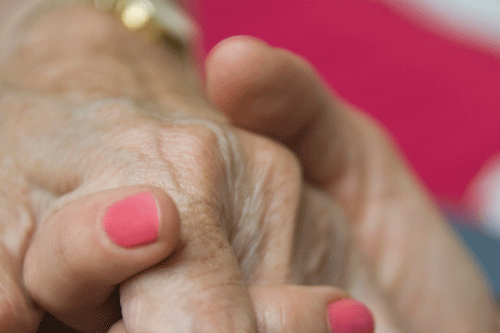How do End-of-Life Decisions Happen will explore decisions taken at the end of life for people with brain injury, dementia or frailty, on Tuesday 13 October at Hamilton House, Bristol (10am-5pm).
Recent improvements in end-of-life care have often focused on better cancer care. But two thirds of us will die of something else – in frail old age, often with some degree of dementia, or perhaps after a stroke or accident that impairs our ability to understand or make choices. Frail older people may struggle to be taken seriously even if they can communicate, while some people with dementia may say one thing today and another tomorrow.
Essential information and advice to increase the chances that dying is as good as can be will cover talking to your family or GP about your wishes, writing down end of life wishes, making an advance decision and arranging a Lasting Power of Attorney.
The researchers from the Universities of Bath, Bristol, Cardiff and Exeter (known as the GW4 network), are exploring how decisions happen at the end of life and would like input from those who are concerned about their own future care, or have experience of caring for someone at the end-of-their life.
People working in health or social care are also invited to share experiences and gather insight from the shared experiences of local people.
The event will include:
- An exhibition featuring work from artists, patients, families and carers
- Local and national charity information stands
- The Listening Tree – an opportunity to share personal experiences or thoughts
- Puppet theatre performances, ‘Where are you now’ about vegetative and minimally conscious states from the carer perspective
- Creative workshops and discussion groups
- Introductory talks about “living wills” (advance directives) at 10.30am and 2pm
- 1:1 surgeries on how to write an advance directive (sign up in advance or come along on the day)
Professor Richard Huxtable, Professor of Medical Ethics and Law in the School of Social and Community Medicine at the University of Bristol, said: “Dying - and particularly dying well - gives rise to a host of social, ethical and legal issues. These are issues in which we all have a stake, and on which we are all likely to have views - about what choices people should have, which care should be offered, and so on. At this event, we hope to explore some of these issues. We'll look at dying well in various ways - there will be advice available, alongside artistic exhibits and readings. By coming along, you'll help researchers in the South West to work out what the priorities should be, in seeking to provide good end-of-life care for everybody.”
Dr Jeremy Dixon, from the University of Bath’s Department of Social & Policy Sciences, said: “Dying may or may not be something we want to think about, but there are a number of things we can do for ourselves and our families to increase the chances of a good death, something that we would all naturally want when the time comes. The day is designed to open the subject up for discussion in a way that people will find comfortable. The experiences shared on the day will help to direct future research on the subject, to inform the way we care for people at the end of their life.”
The exhibition will be open from 1pm on Monday 12 October until 1pm on Thursday 15 October and local people are invited to drop in throughout the day.
More information about How do End of Life Decisions Happen, the GW4 network and its current and future research plans can be found at https://gw4dyingwell.wordpress.com/ or contact gw4dying@bath.ac.uk for more information.
